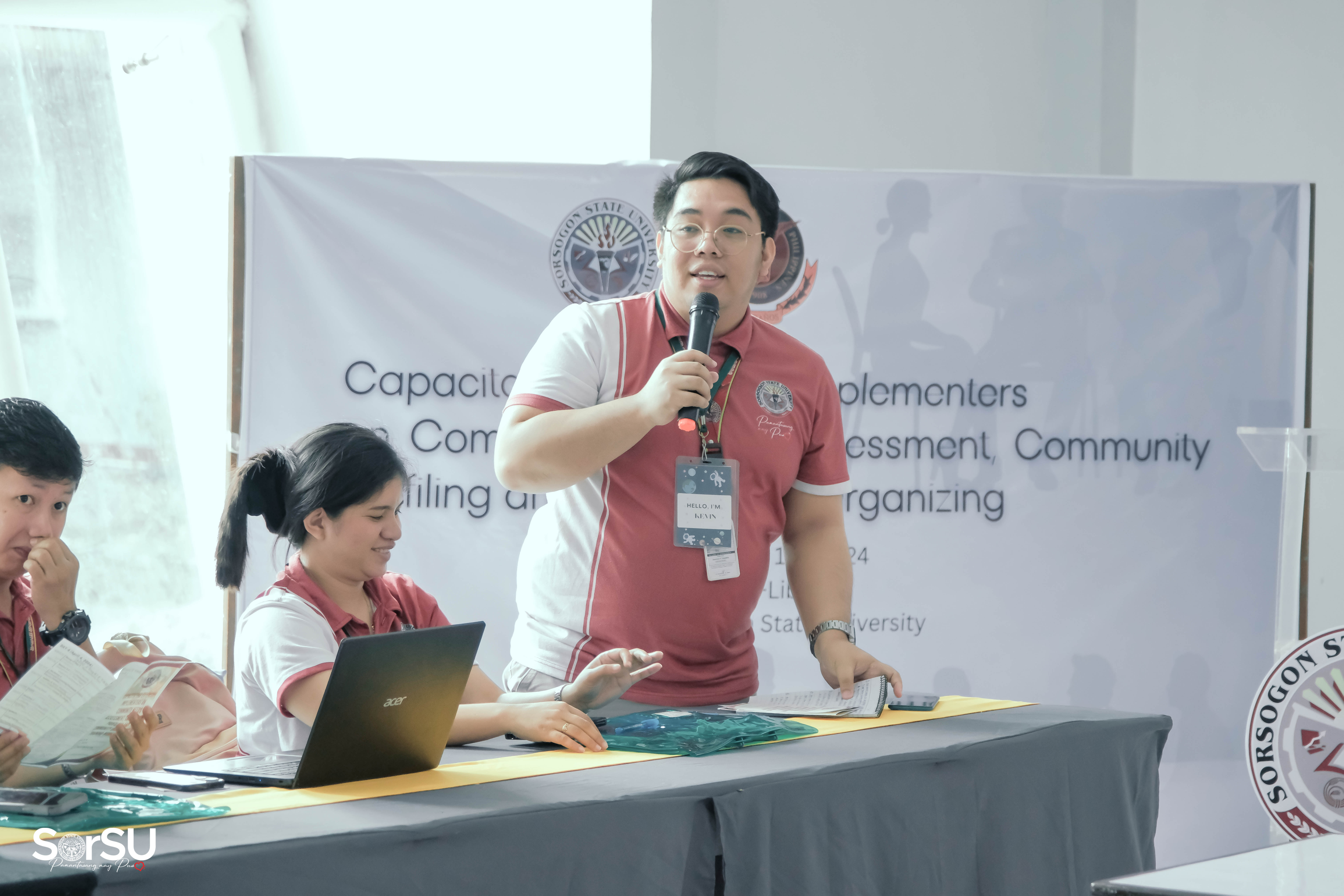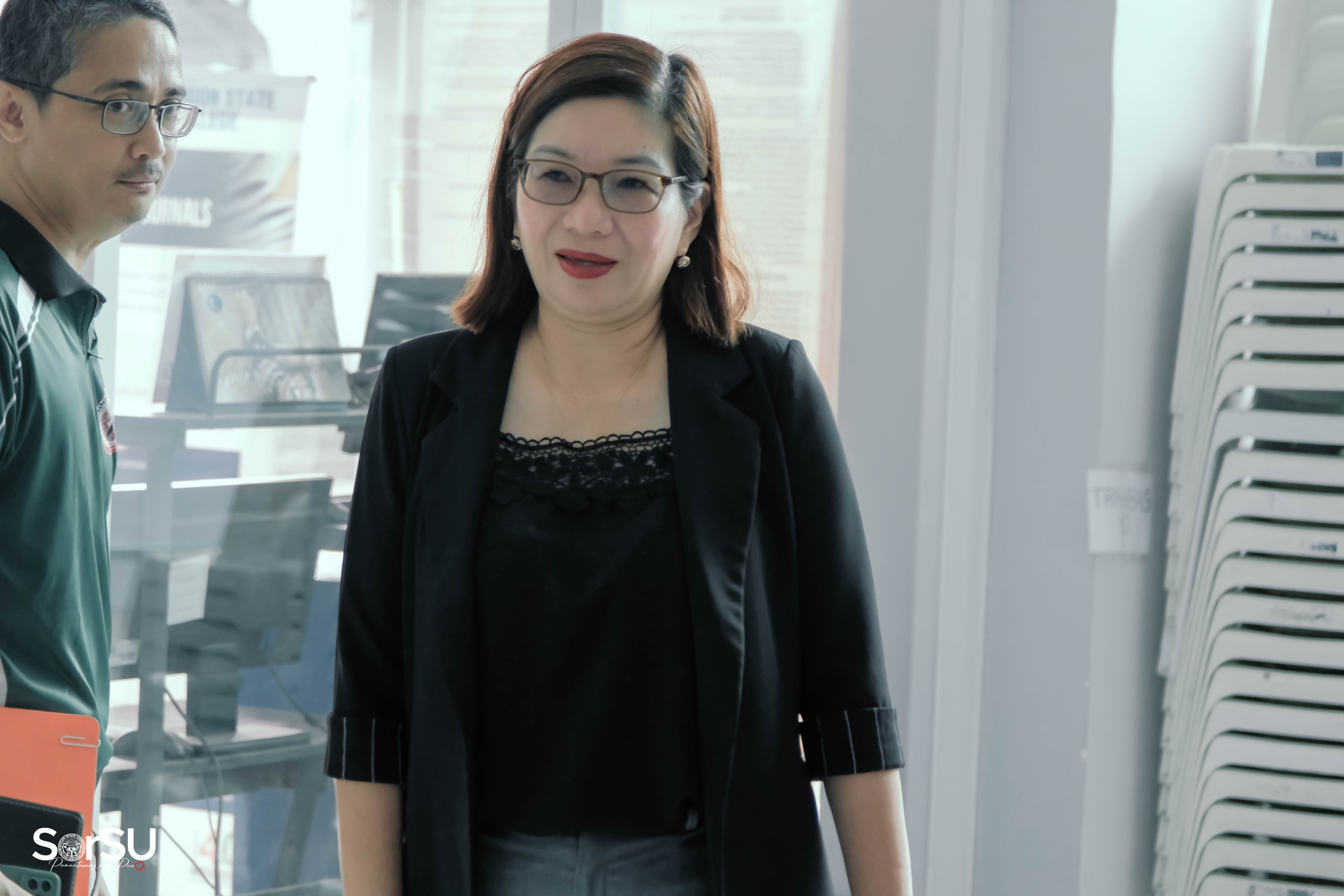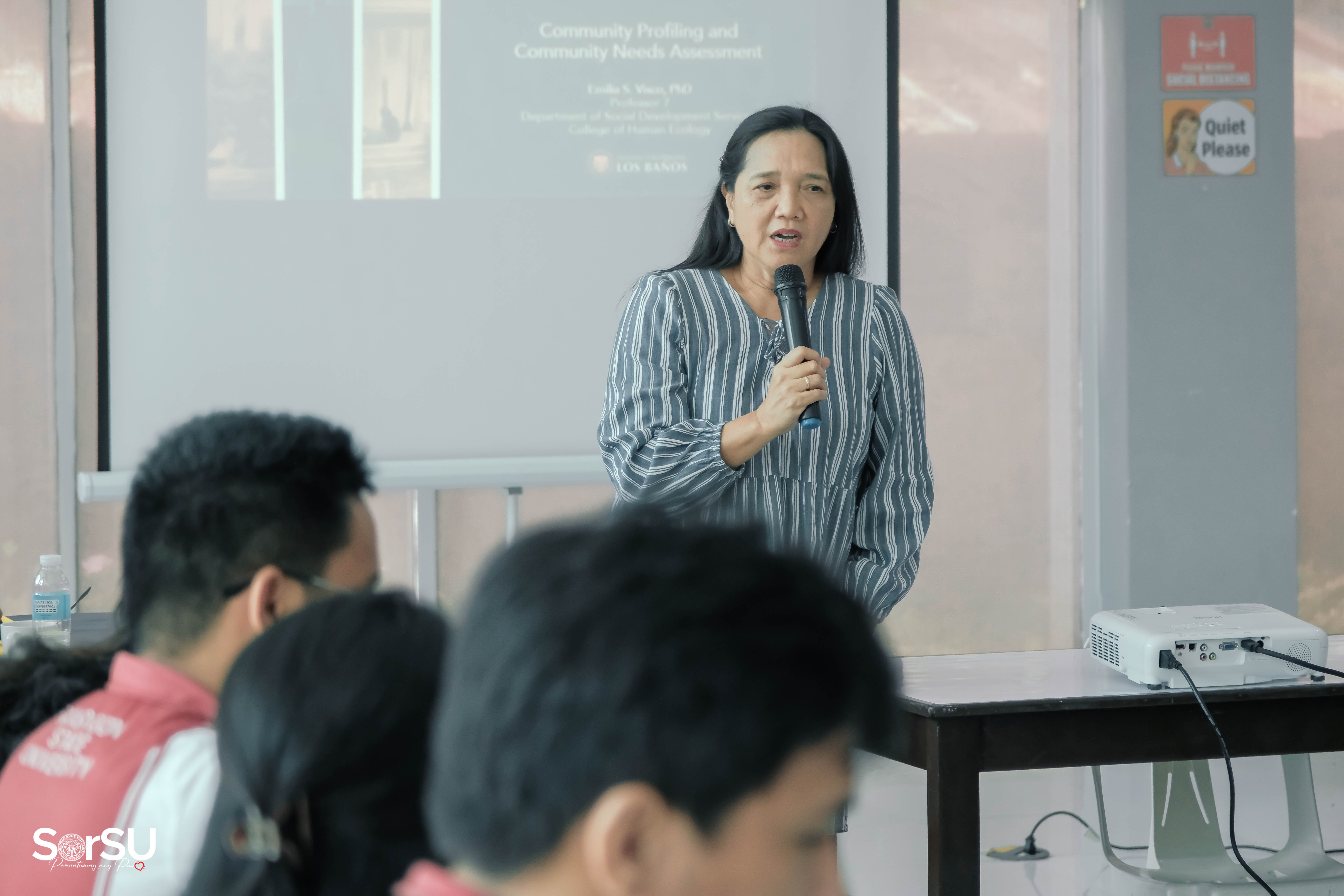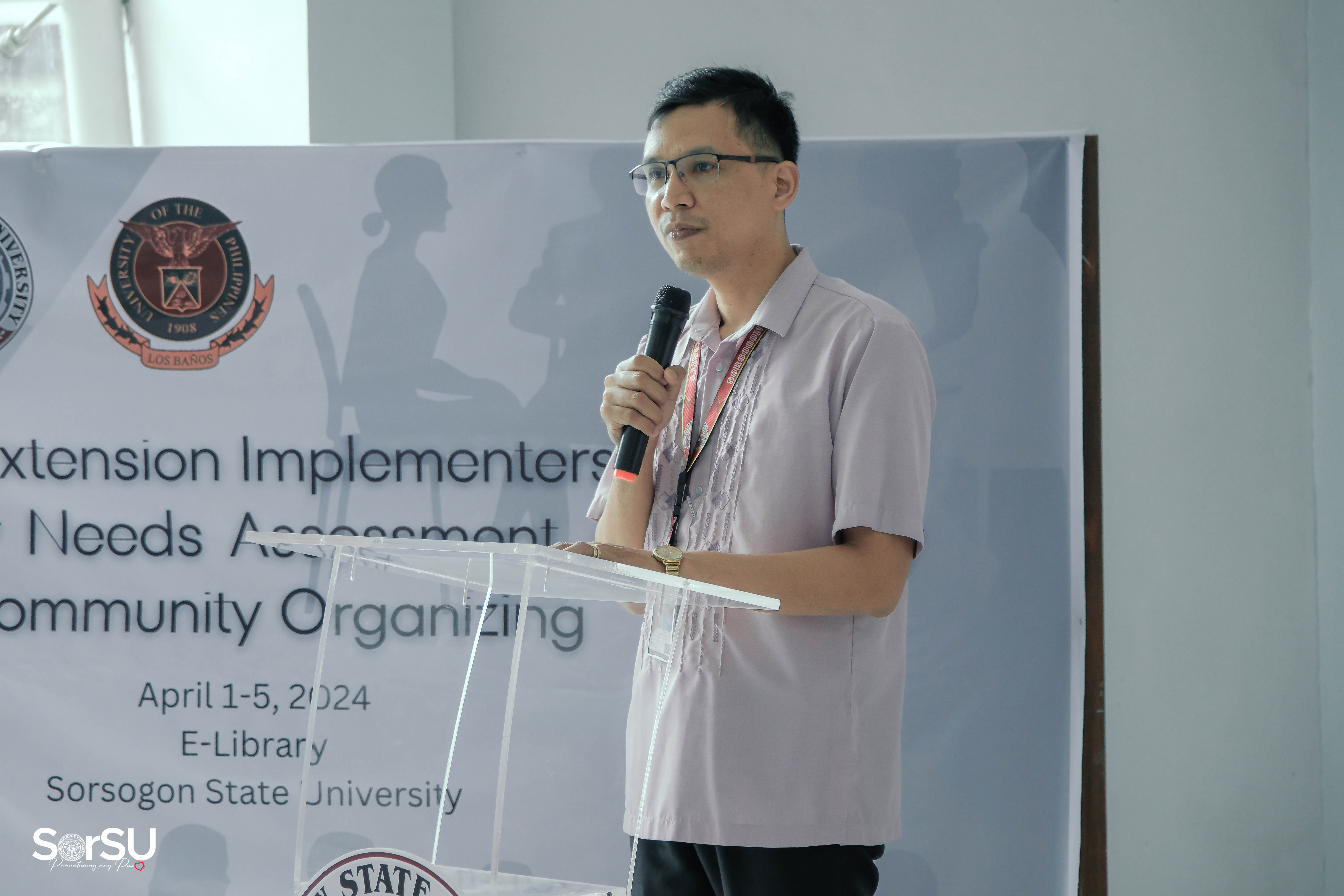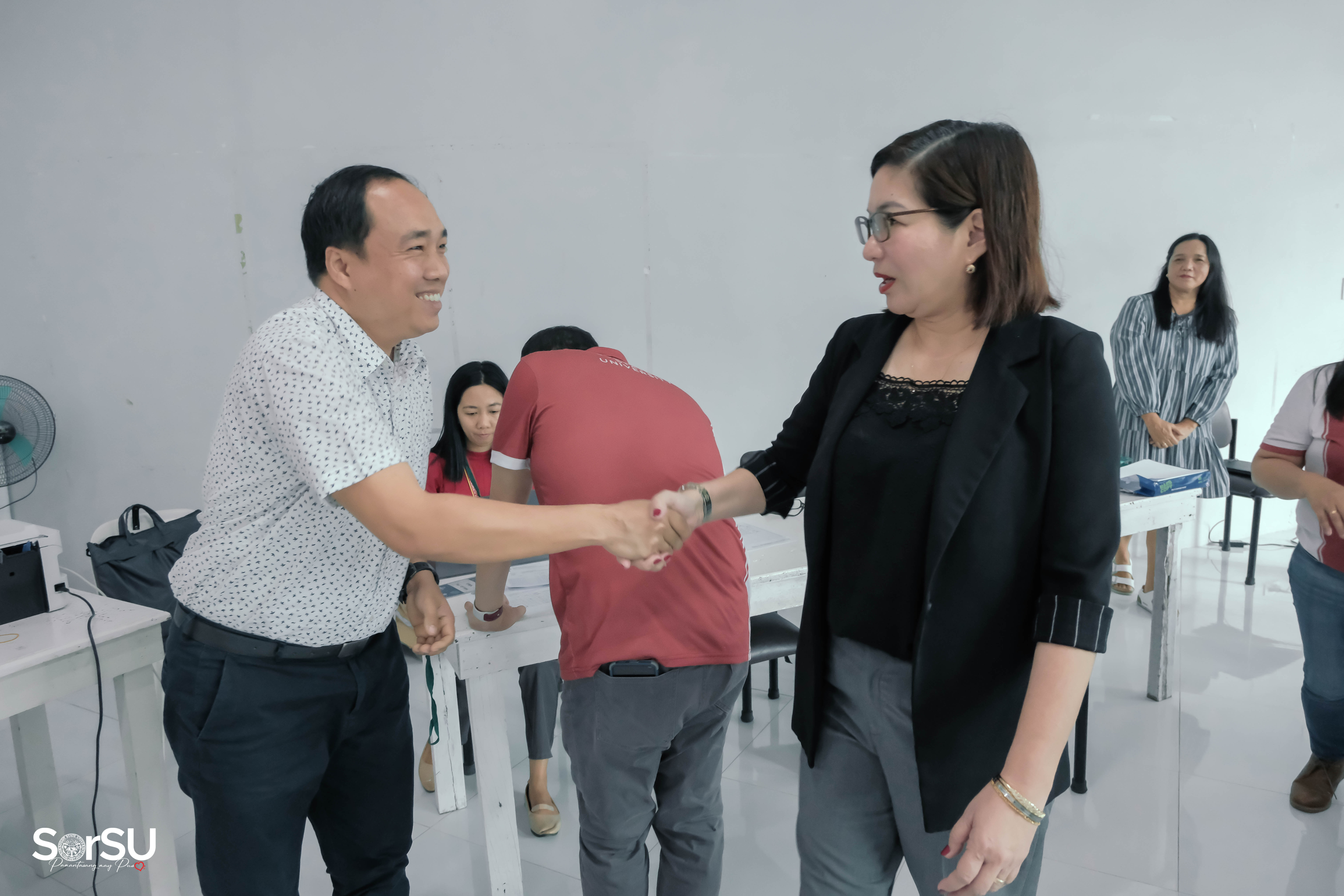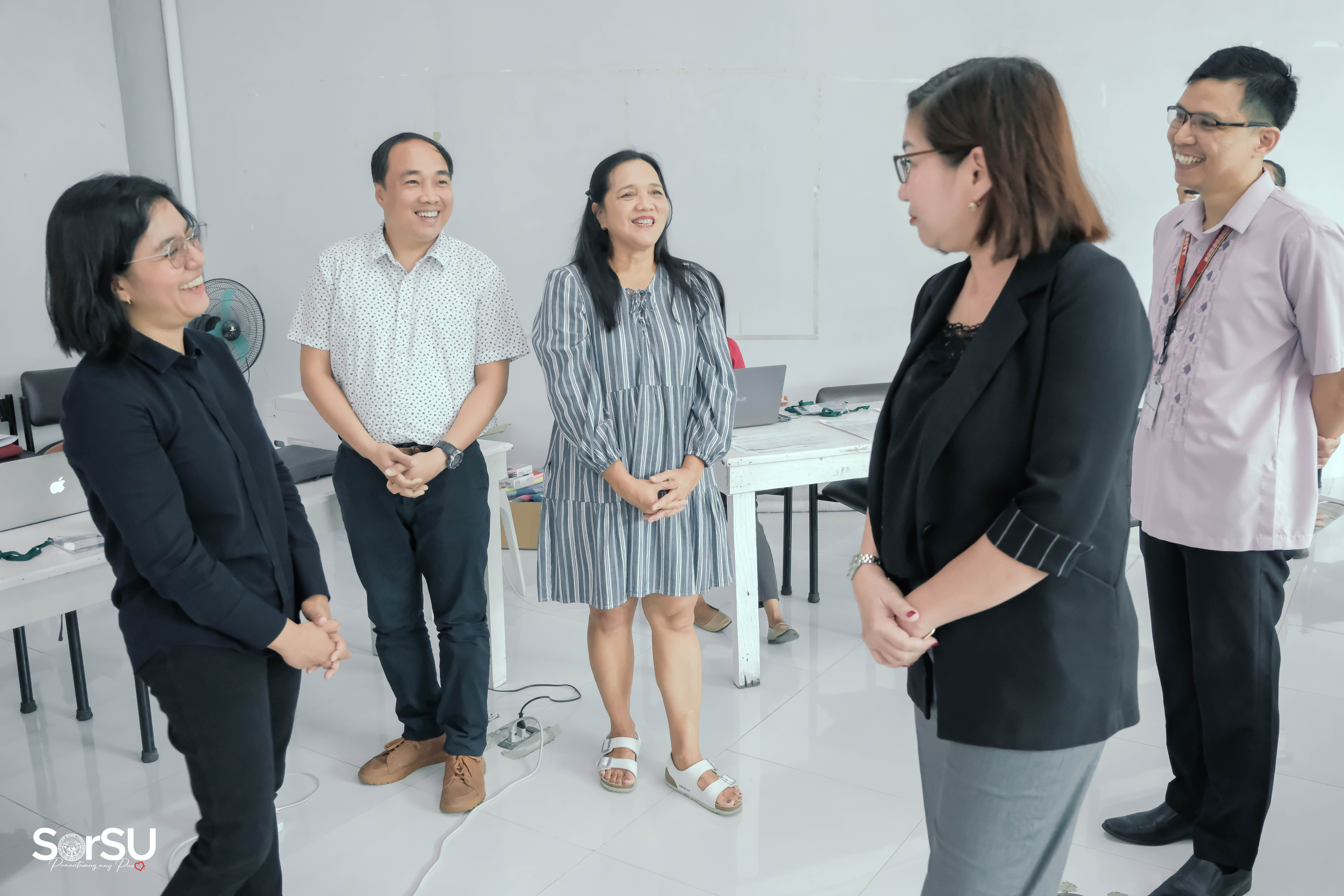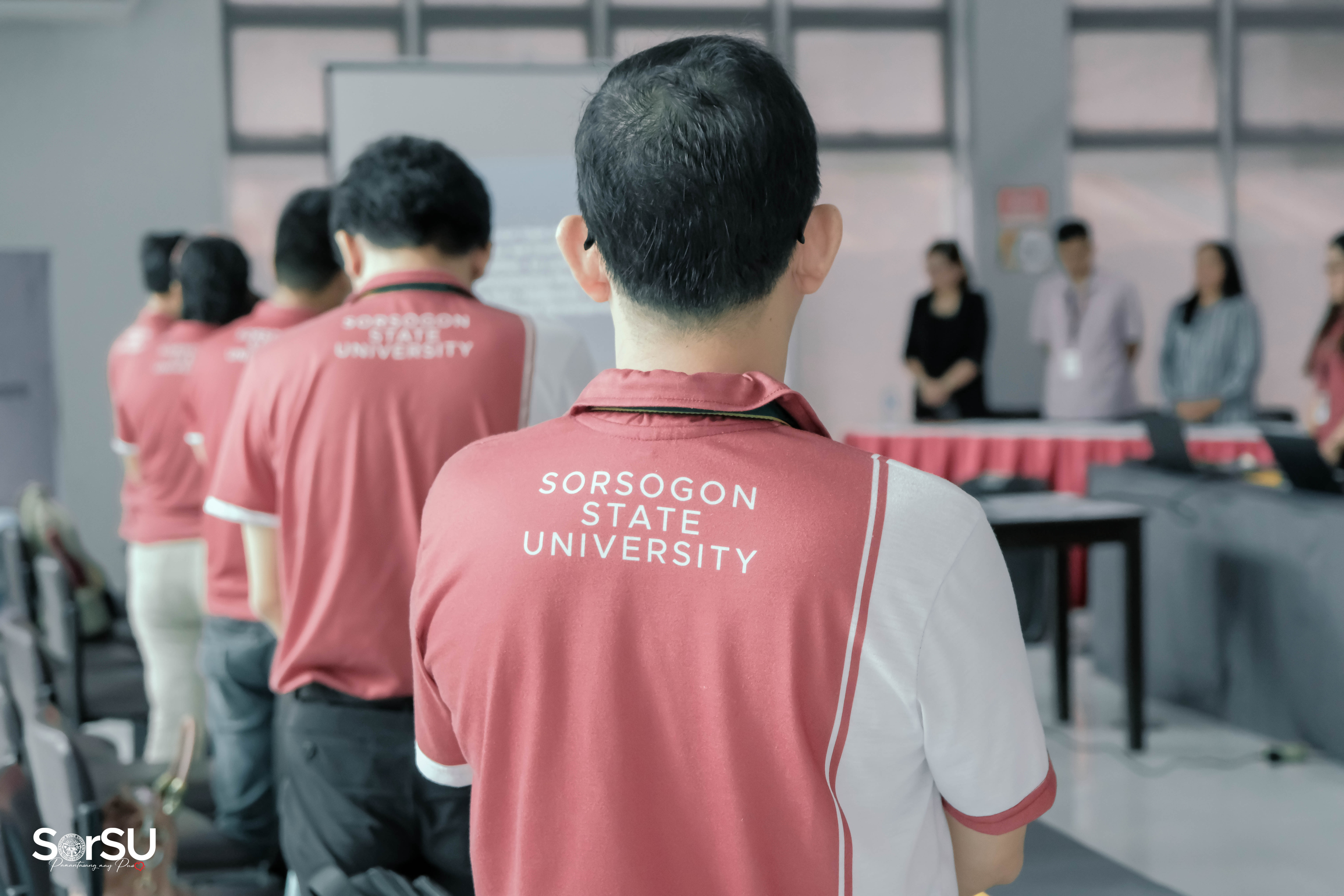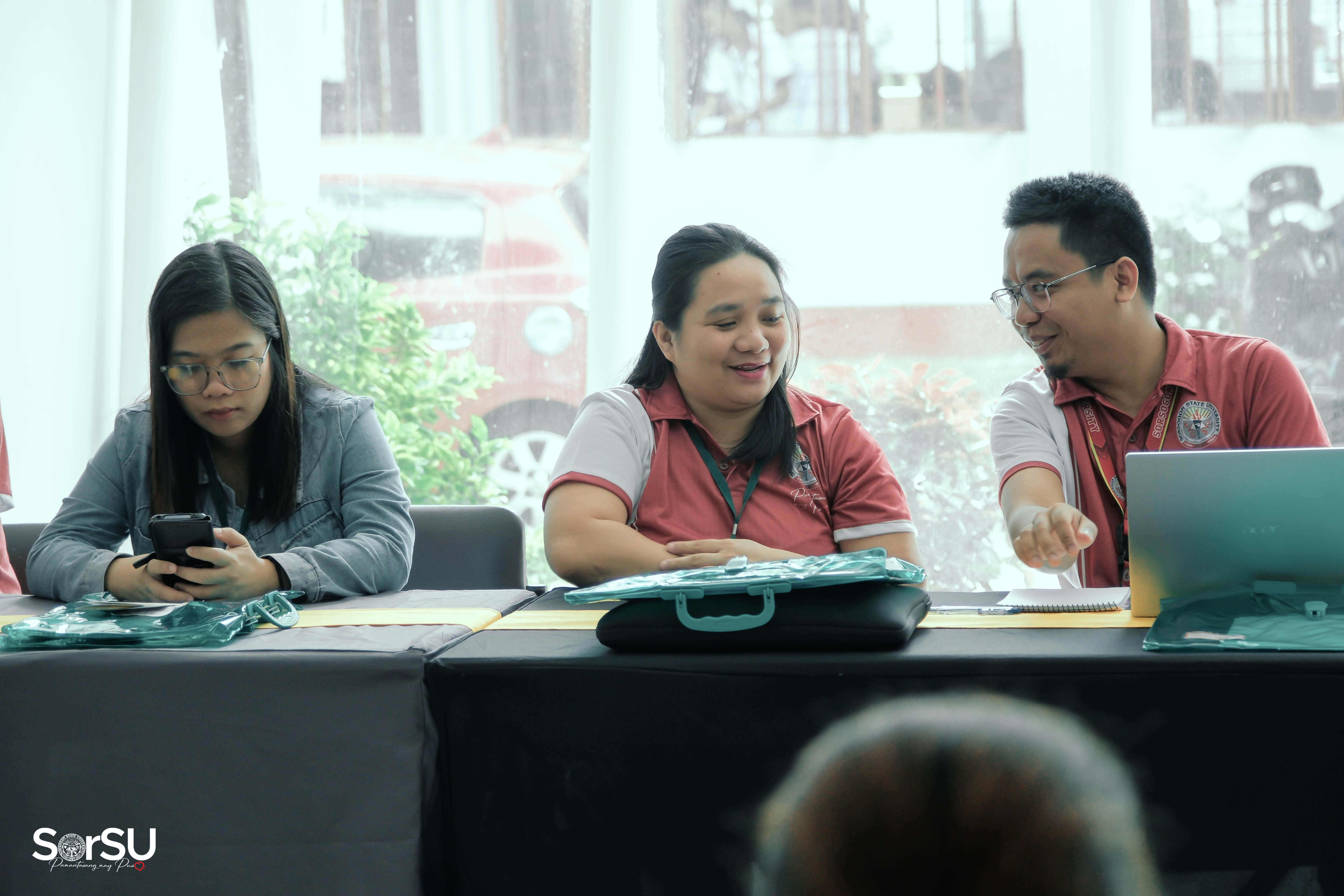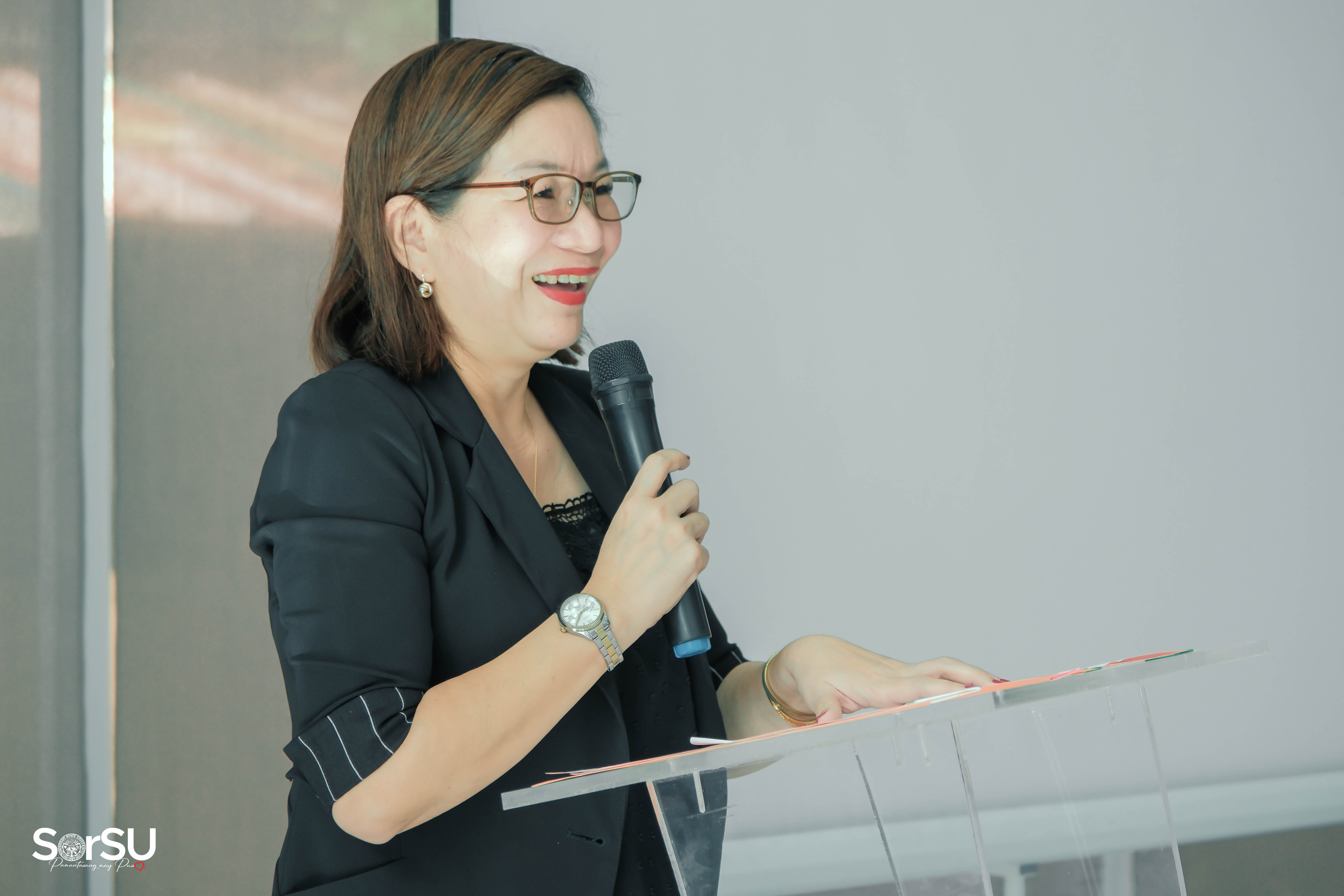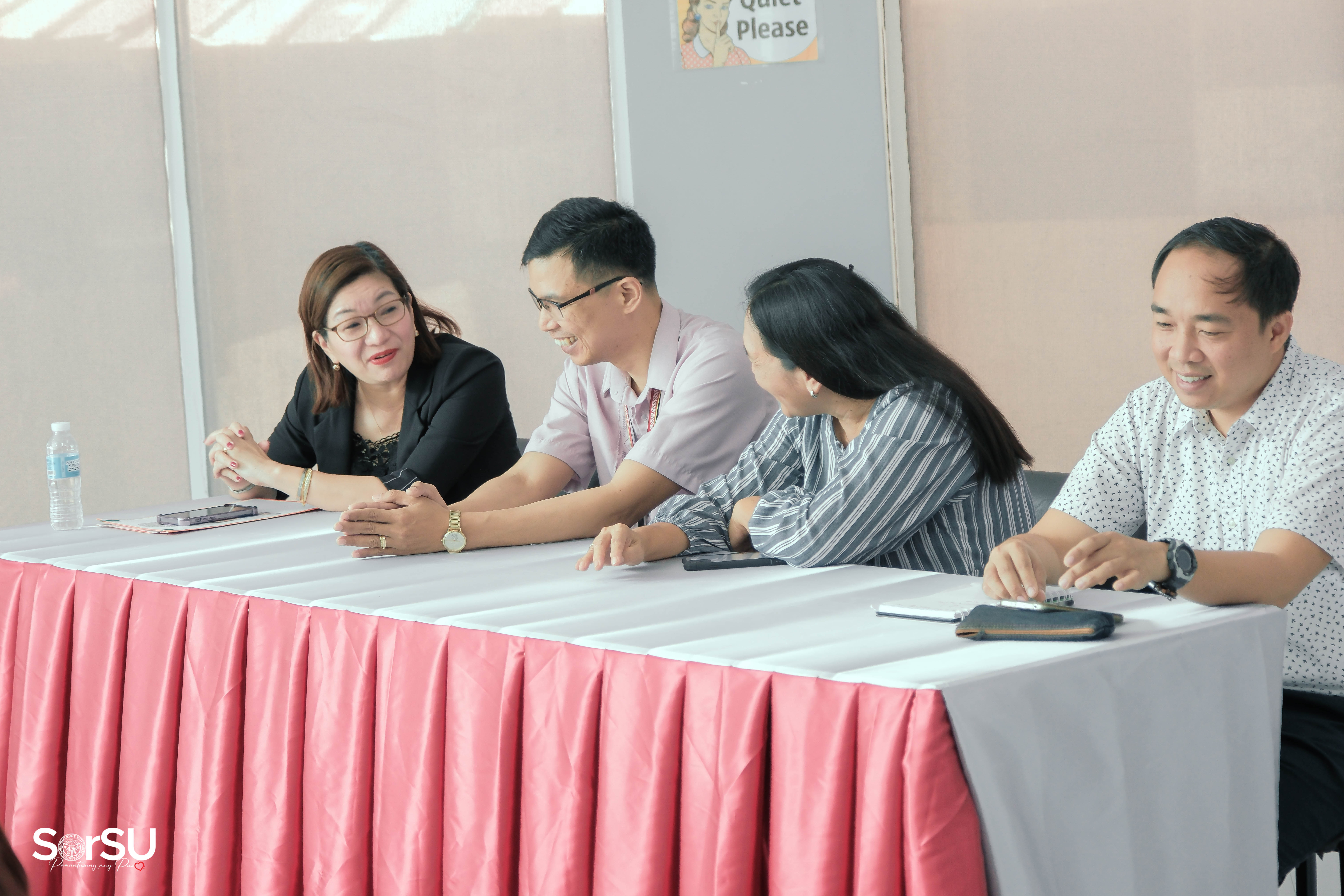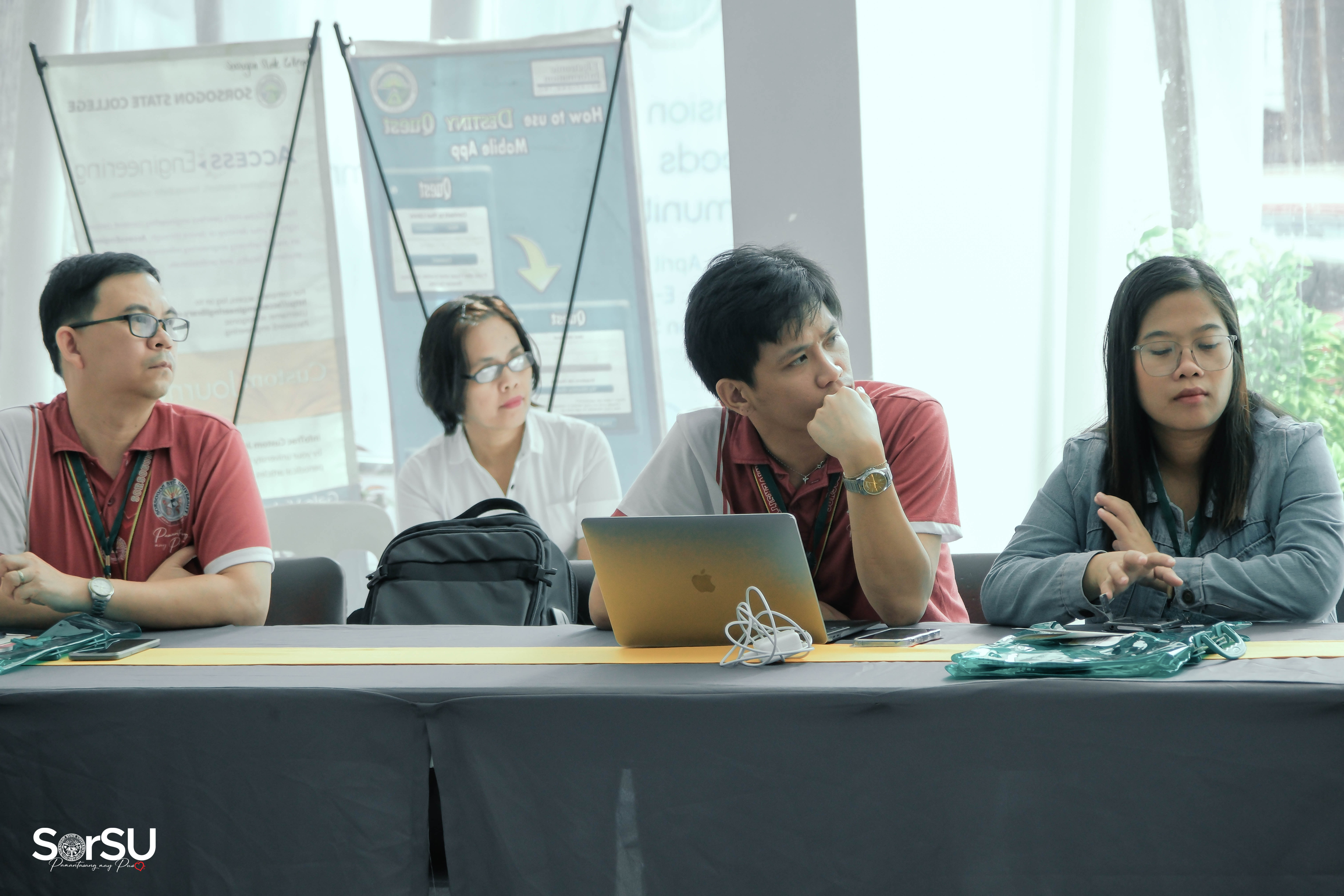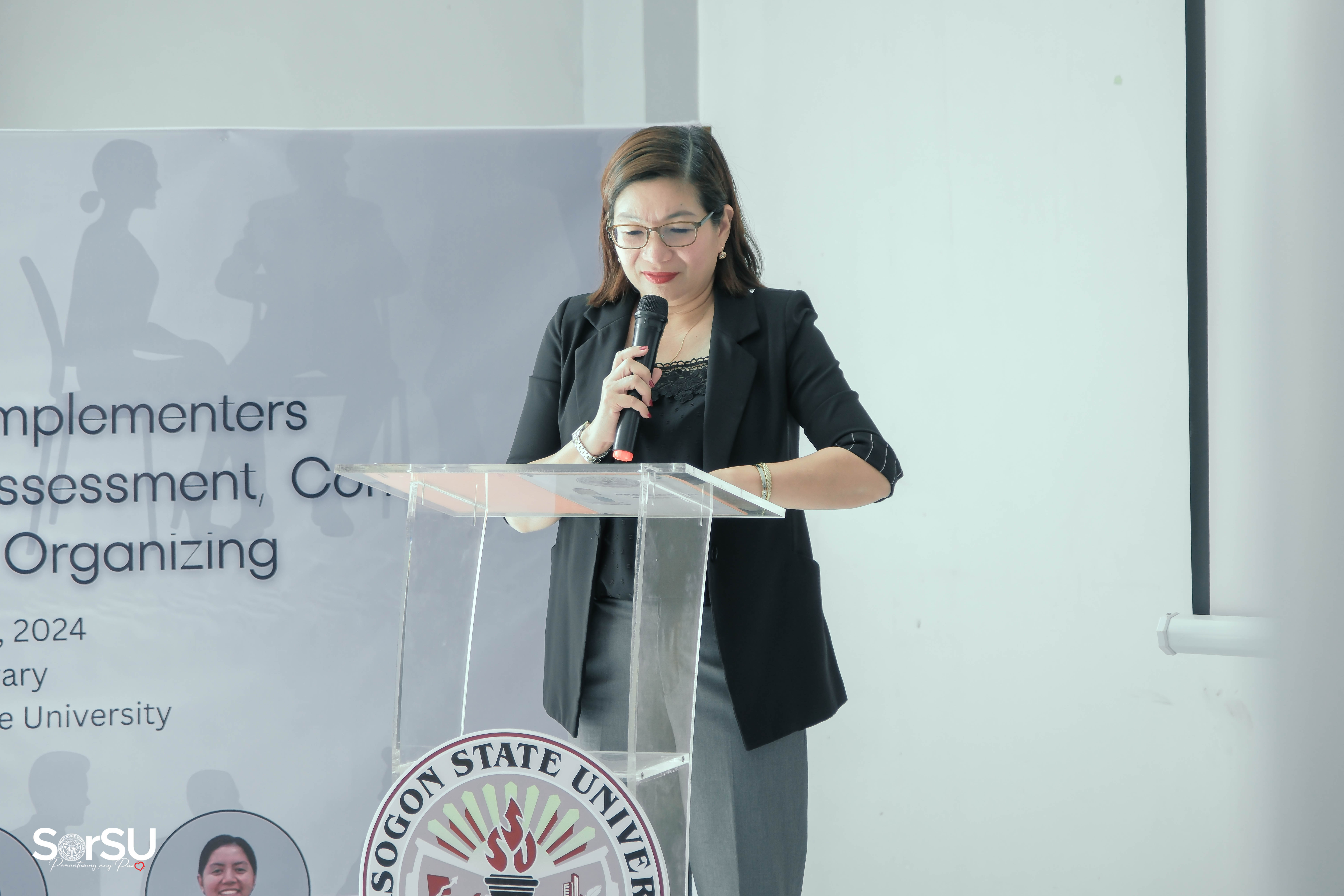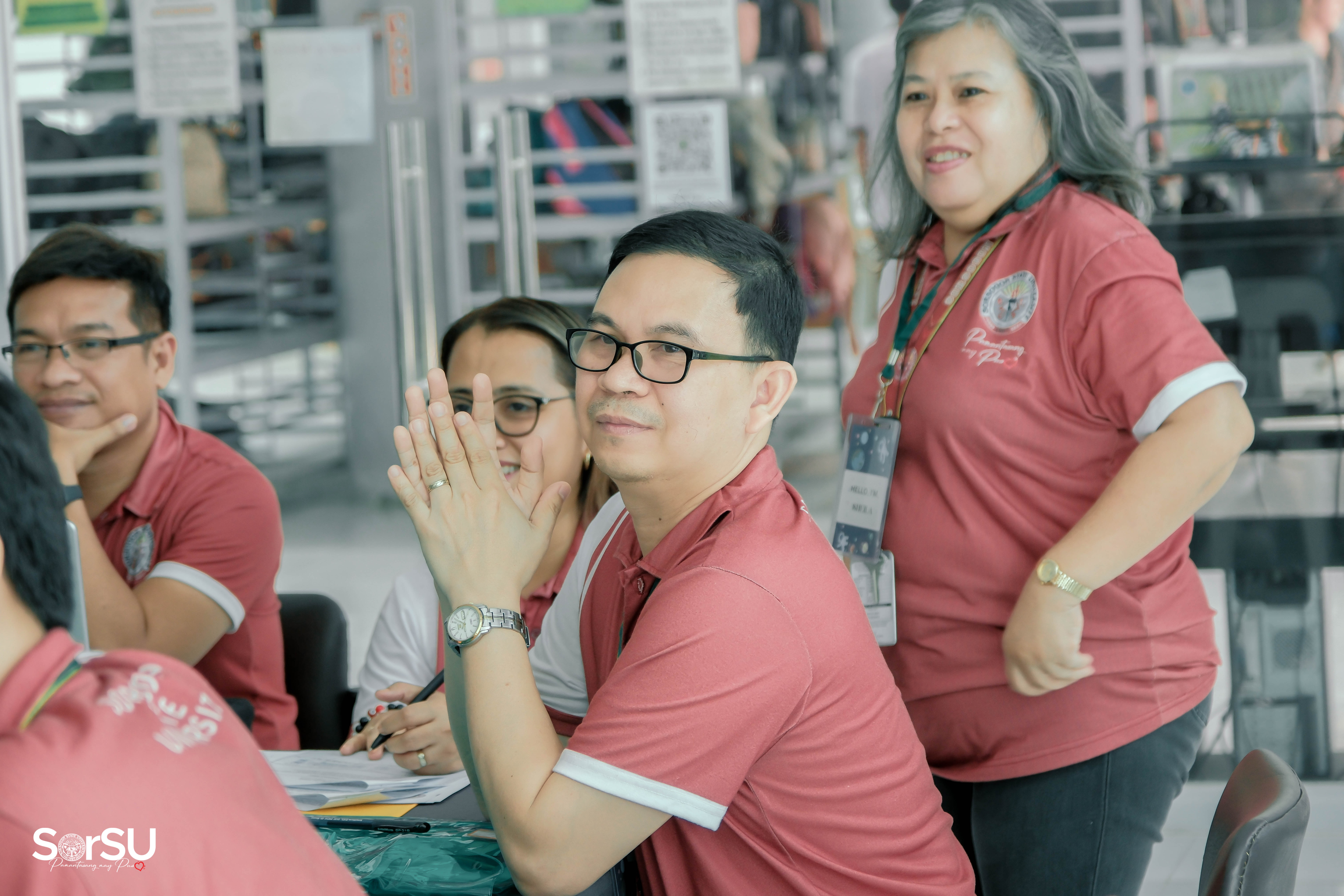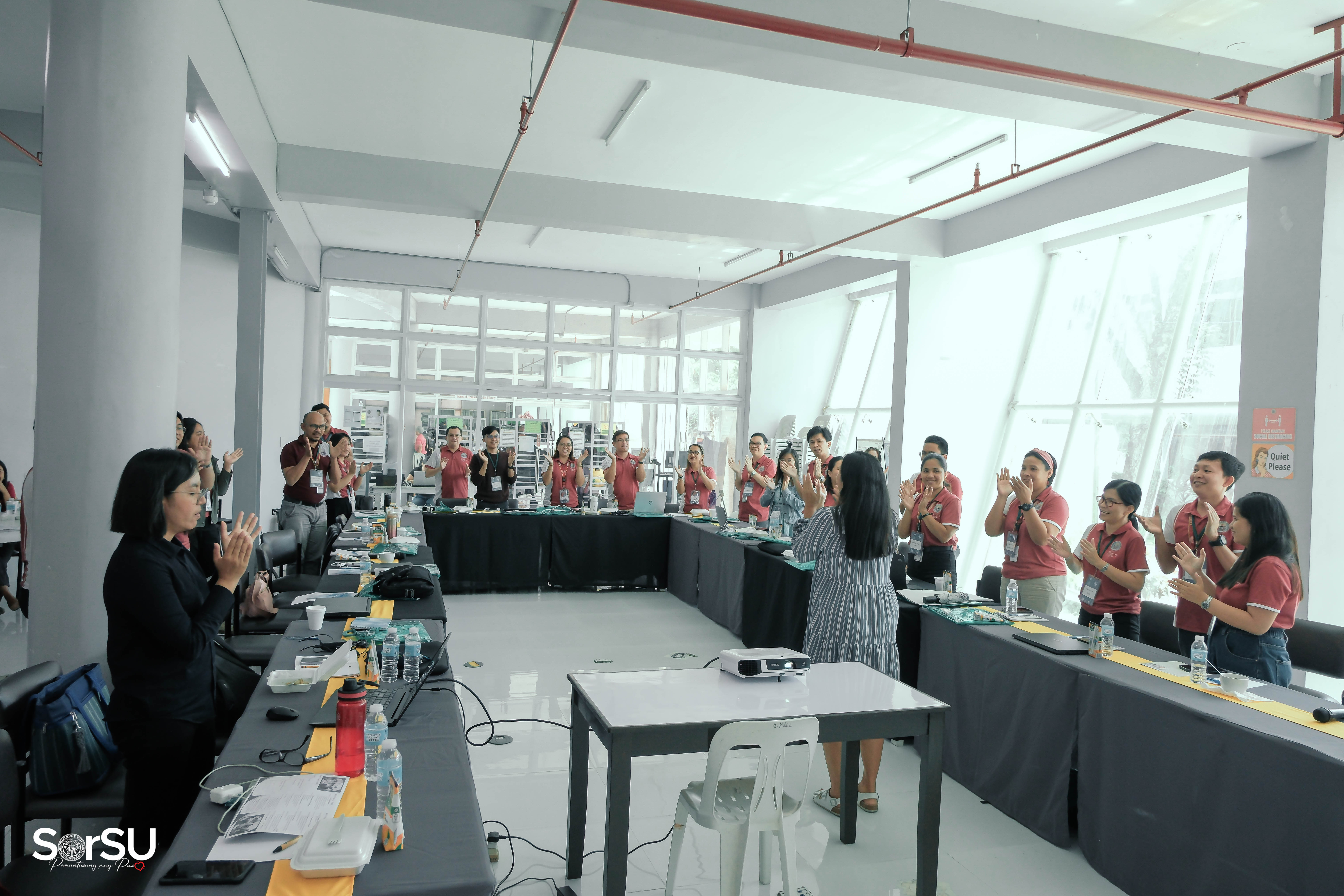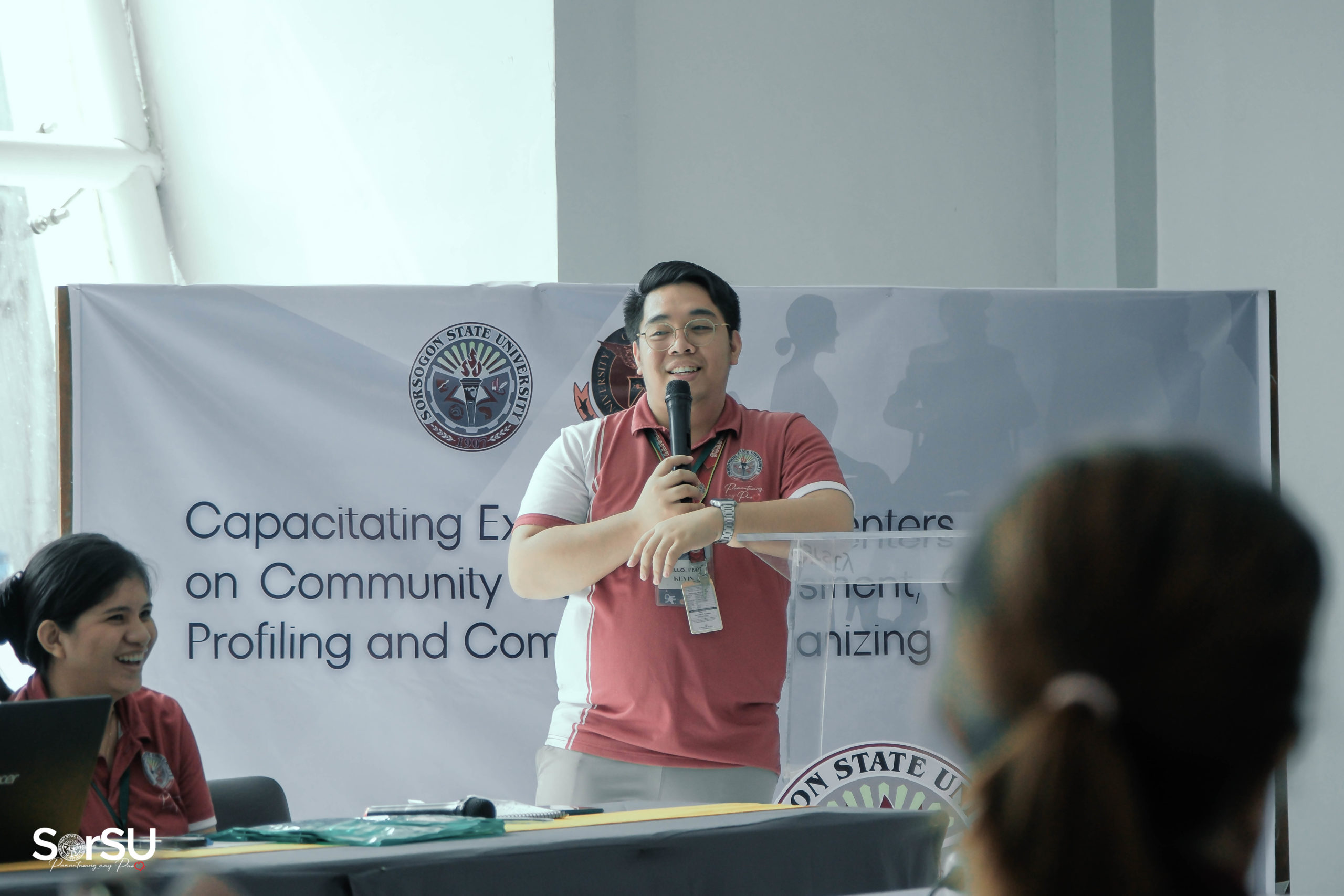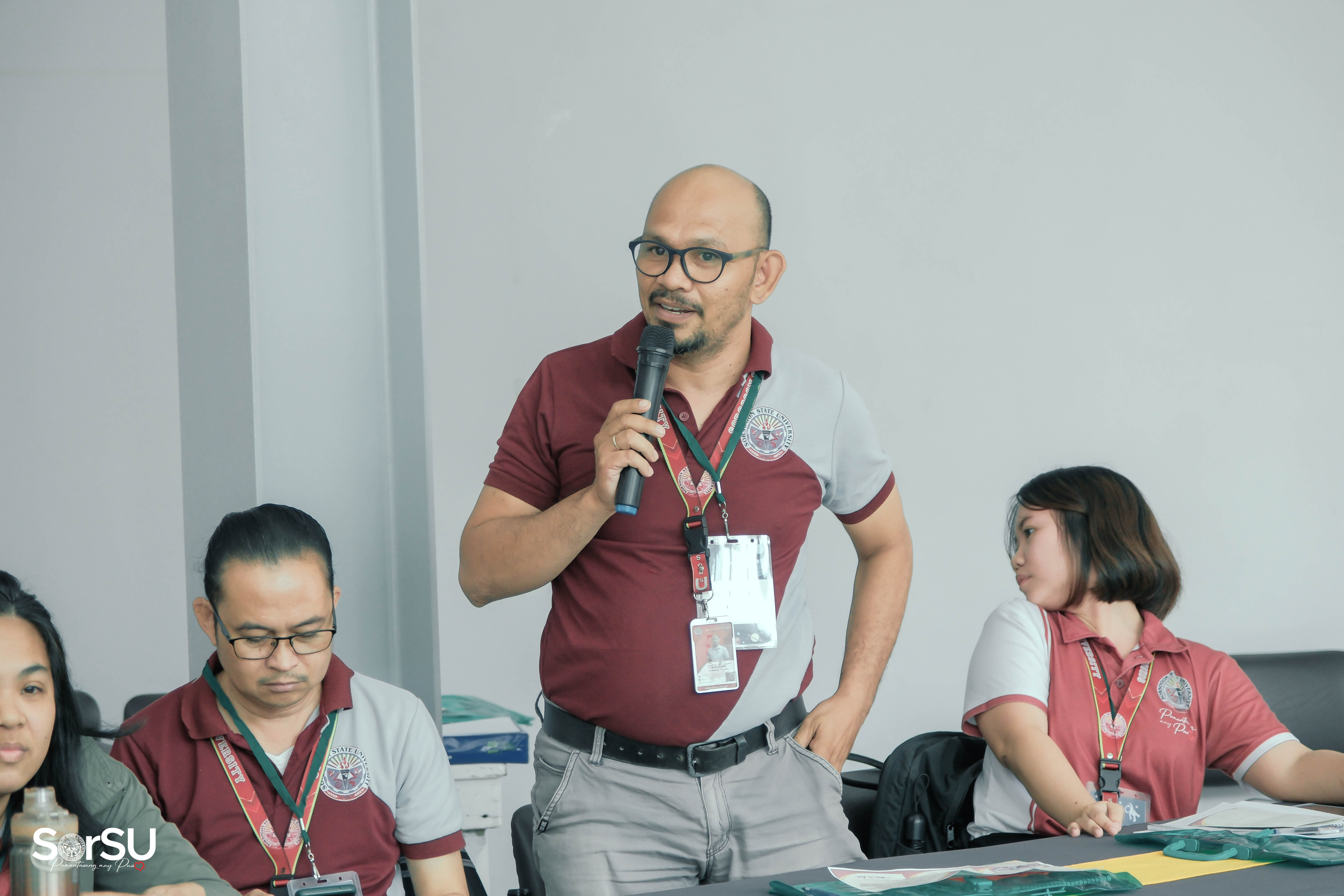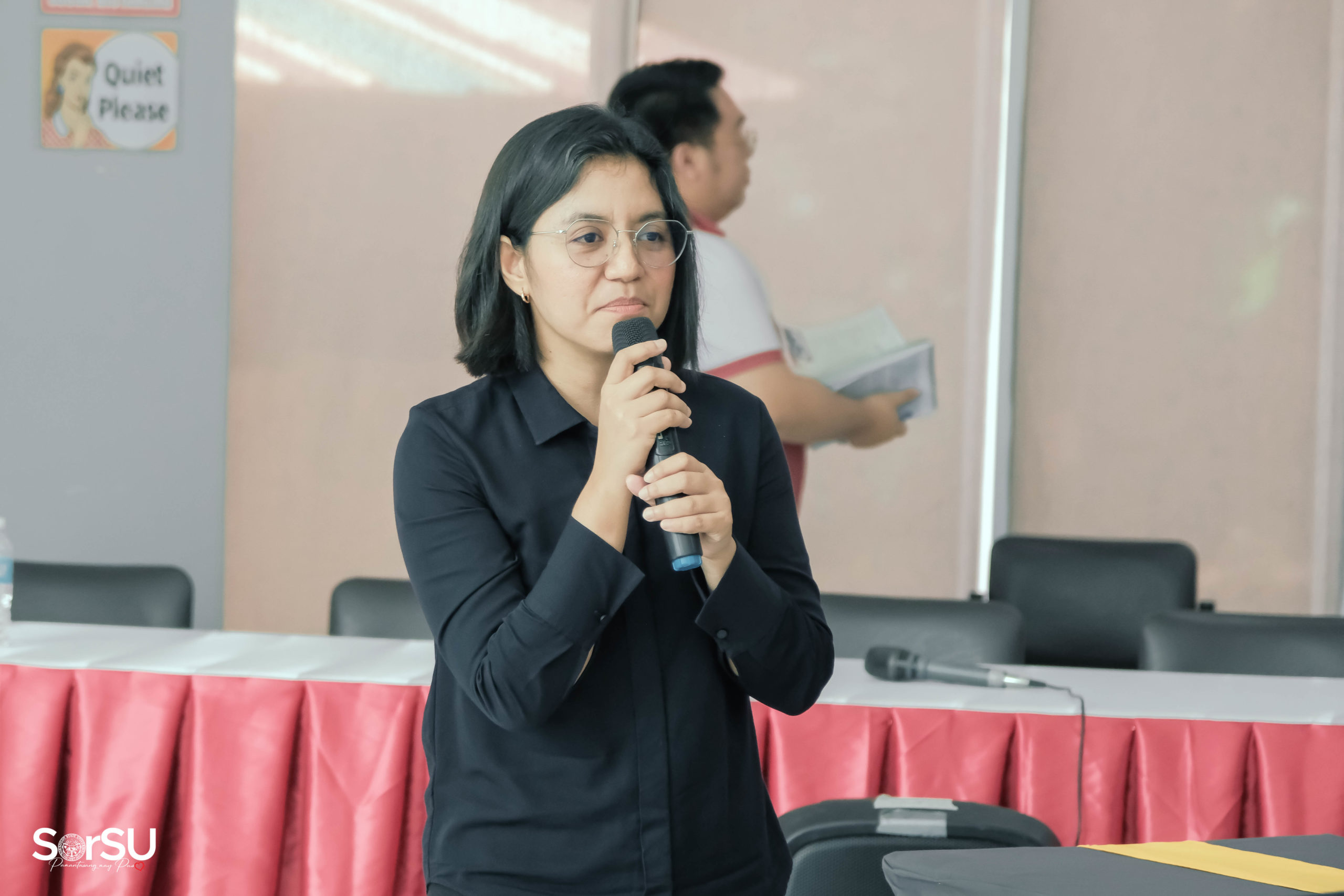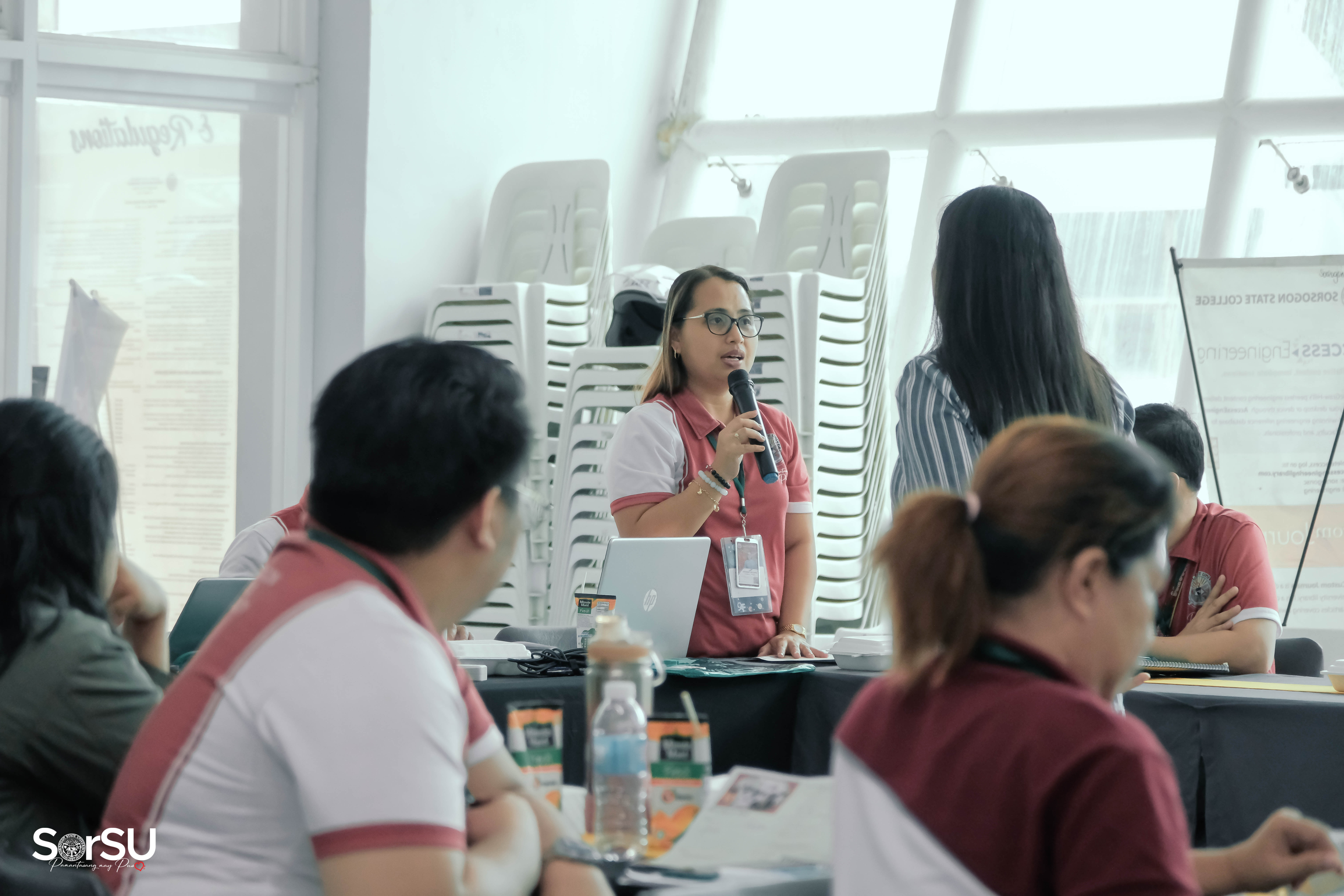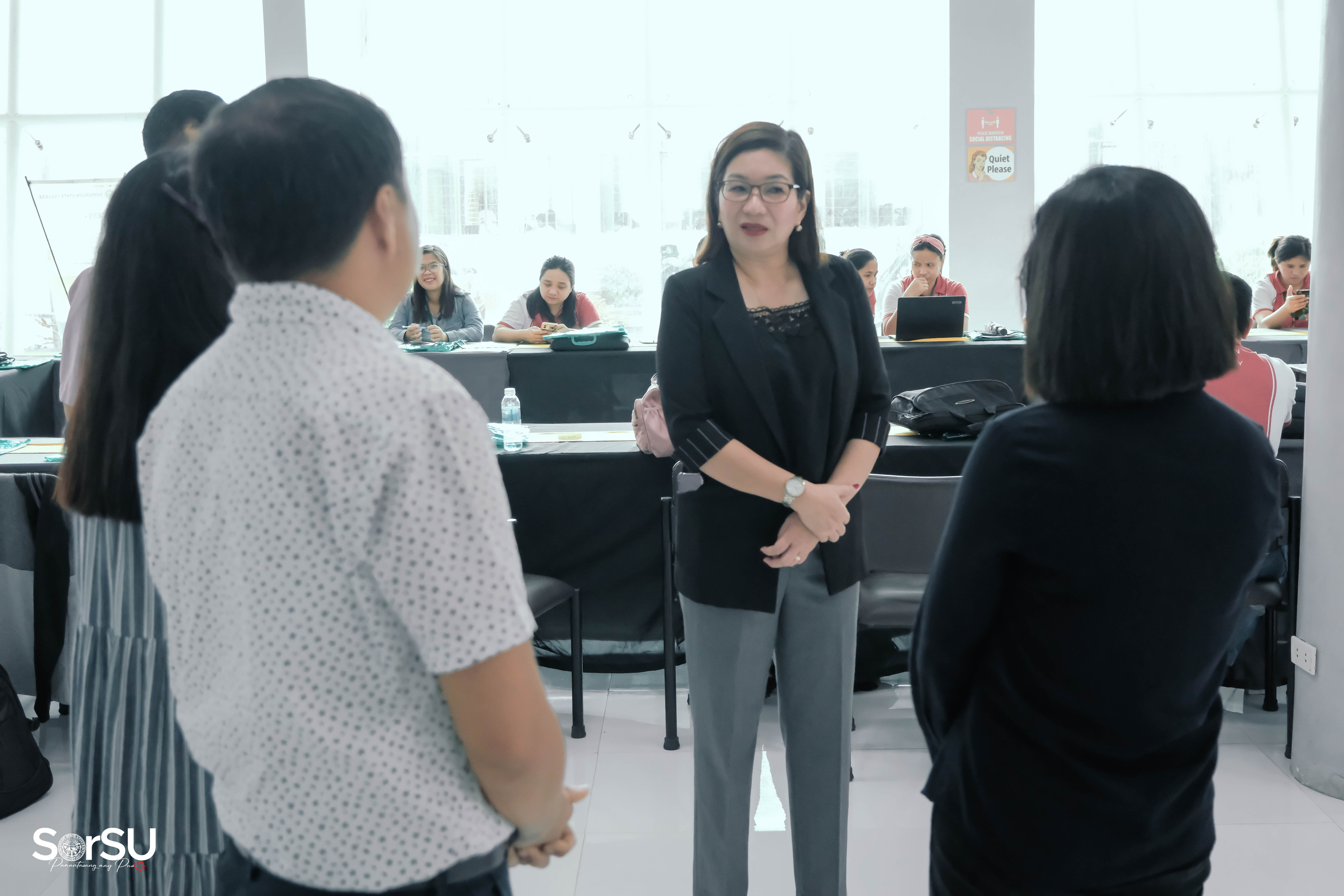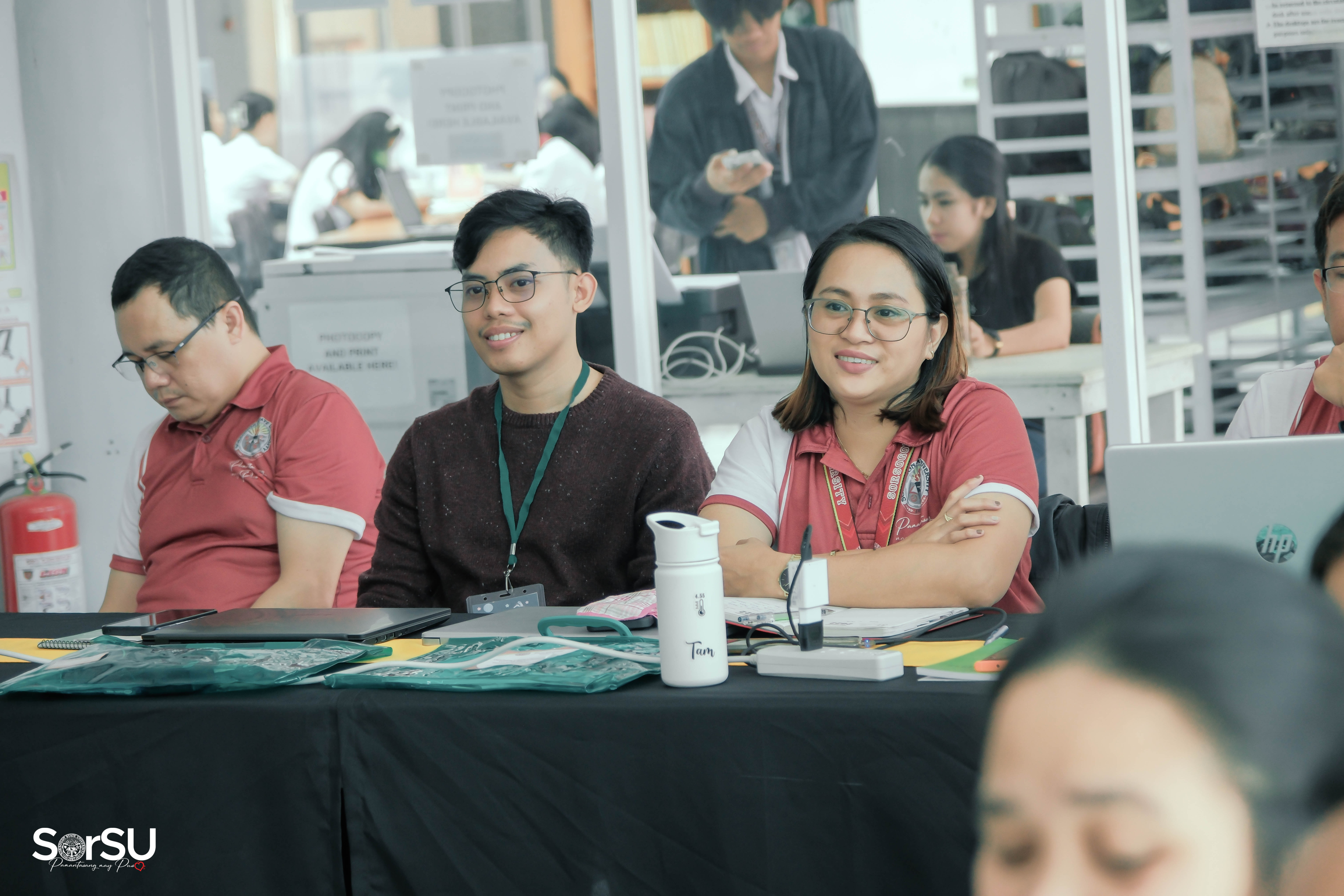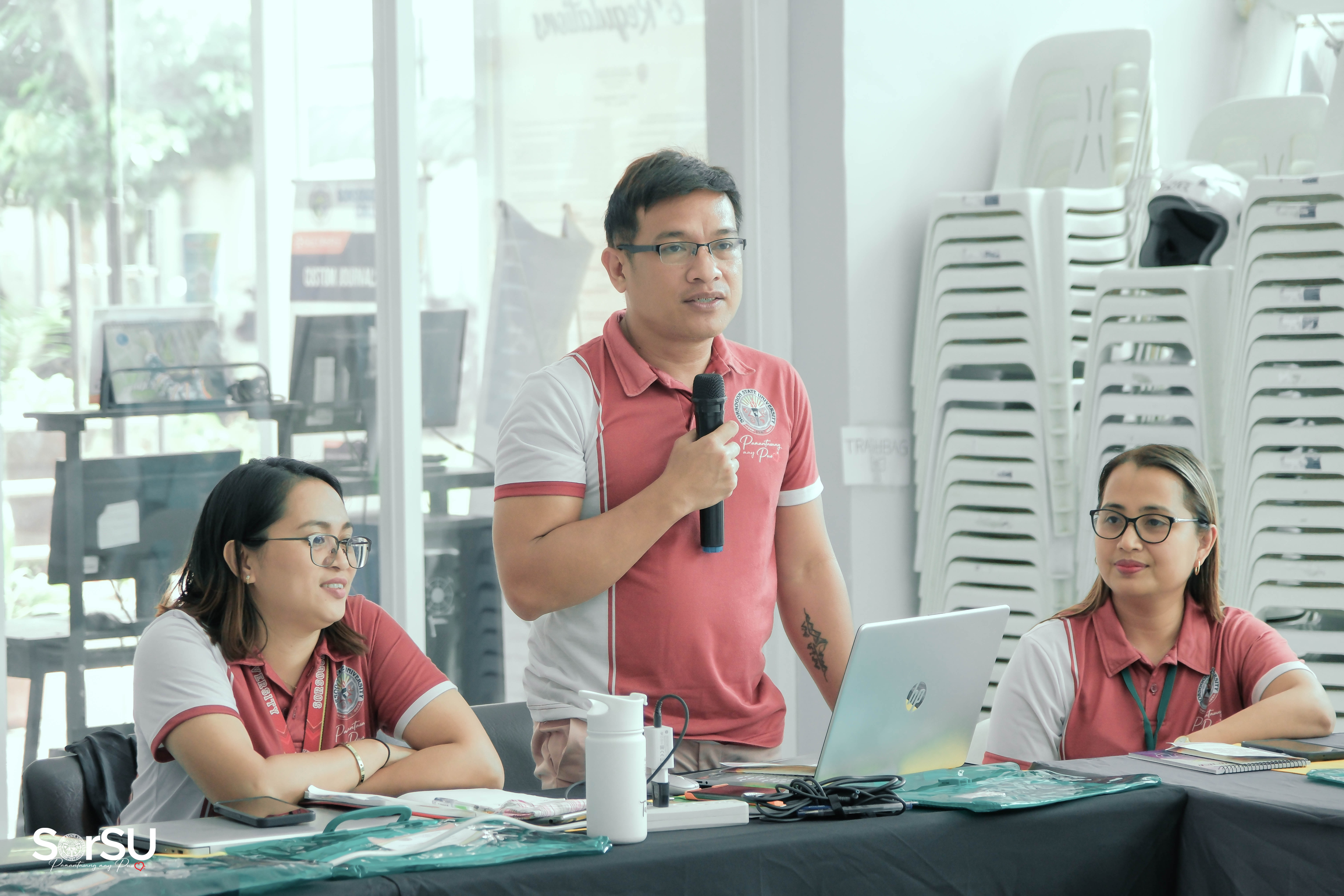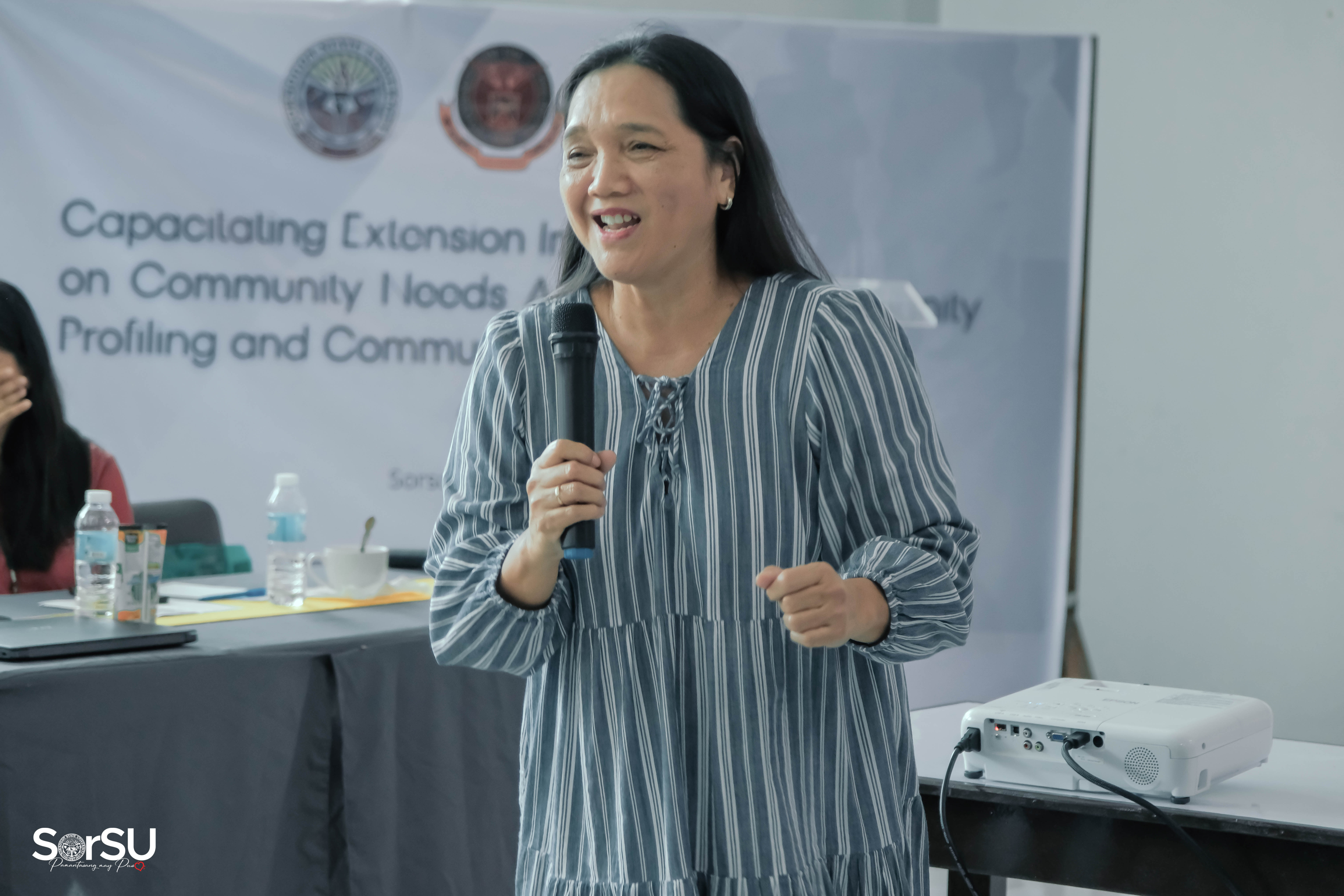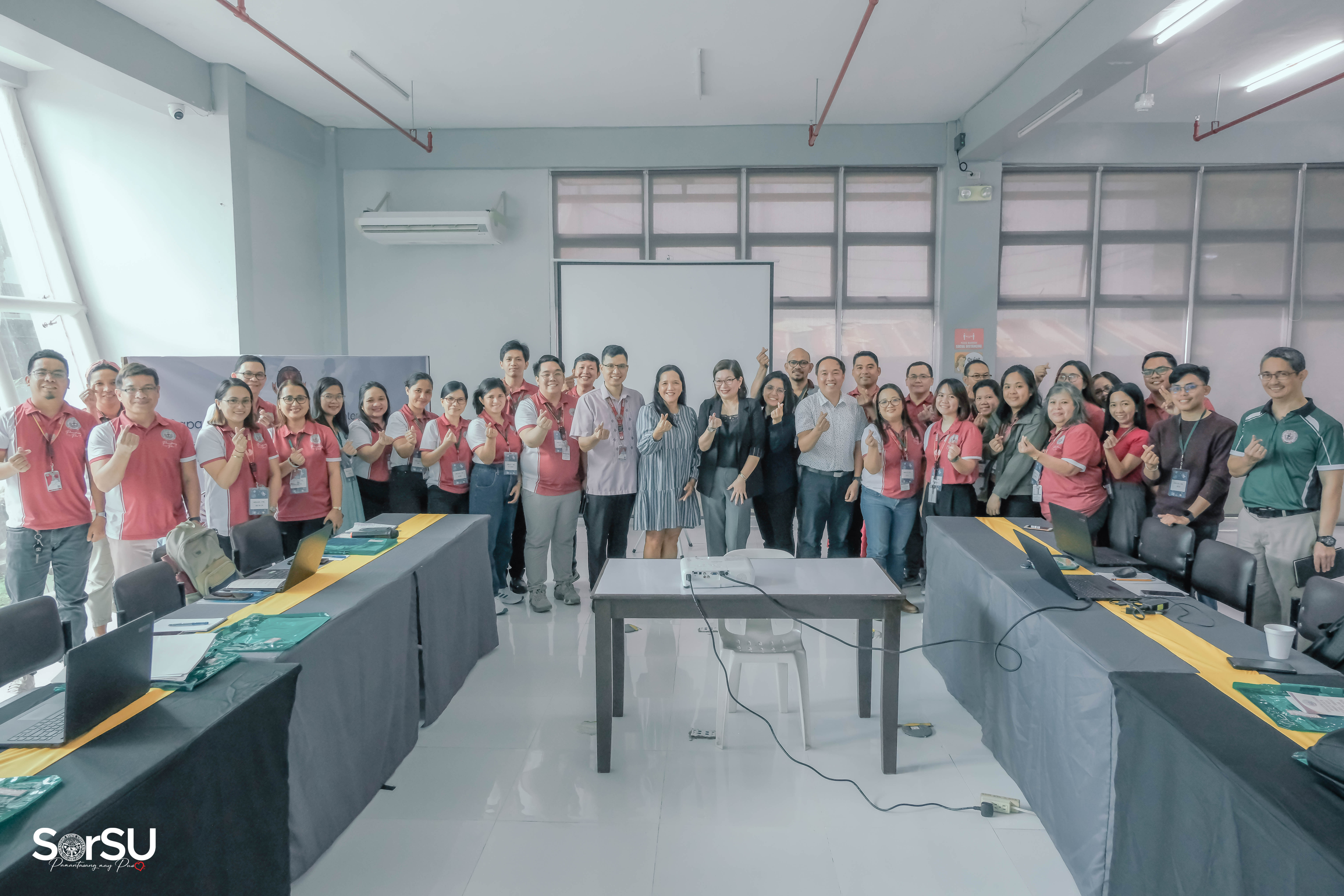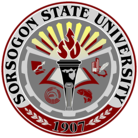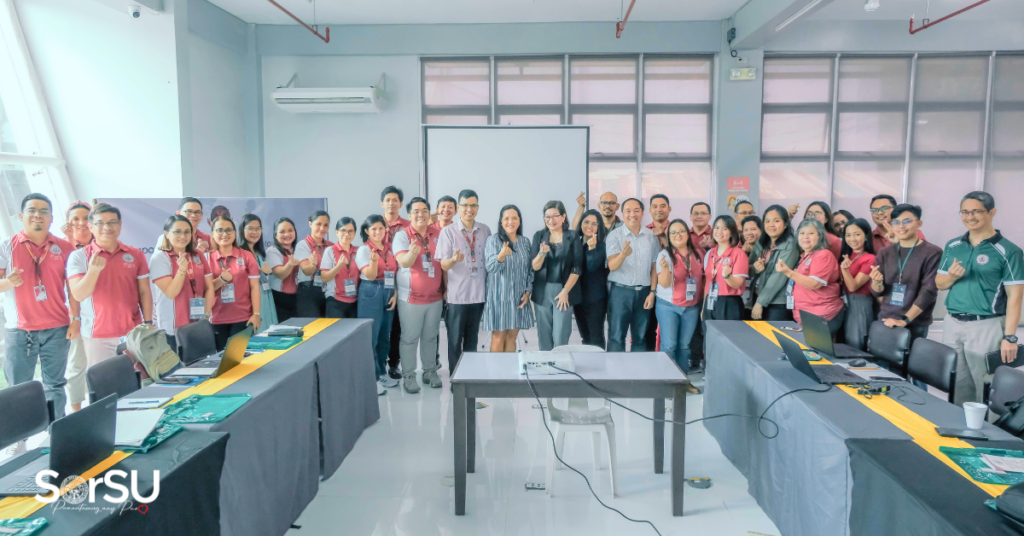The Office of Research and Extension Training of Sorsogon State University, orchestrated a transformative 5-day training-workshop from April 1-5, 2024, focusing on Capacitating Extension Implementers on Community Needs Assessment, Community Profiling and Community Organizing Training-Workshop. Hosted at E-Library of Sorsogon State University, the event which was spearheaded by Dr. Ana Cristina G. Fortes (Director, Office of Extension and Training) aimed to equip participants with essential skills for community-driven initiatives.
Dr. Ryan V. Dio, the Vice President for Research, Extension and Training extended a warm welcome to the guest speakers, and introduced the participants across four campuses, the committed faculty extensionists and stakeholders. . In his message he said, the experiences and expertise of our partners and speakers will be a big help to assist us in the realization of our goal of pursuing a viable extension program, projects and activities. We are hoping that this training workshop will strengthen our being productive, active and proactive members of this institution and the community it serves.
In her opening remarks, SUC III President Dr. Geraldine F. De Jesus underscored the importance of adopting people-centered and collaborative approaches for sustainable socioeconomic development beyond the university’s confines. Moreover, she said, as the Pamantasang May Puso, we aim to educate our youth with a heart for them to achieve their aspirations and goals in life. And at the same time, we endeavor to facilitate positive changes to our communities through relevant and useful projects that highlight the bayanihan spirit of teamwork ultimately resulting to people empowerment and self-reliance.
Day 2 commenced with sessions led by Dr. Emilia S. Visco (Professor 7, Department of Social Development Services, College of Human Ecology, University of the Philippines, Los Banos), delving into the Concepts and Importance of Community Profile; Concepts and Importance of Community Needs Assessment; Methodology and Tools for Community Profiling and Community Needs Assessment Design (Qualitative-FGD &KII and Quantitative Survey) and Data Collection Methods. She emphasized that understanding local needs, profiles, and organizing strategies are crucial for effective outreach and development.
Prof. Marife Dapito (Lead Coordinator of DSDS, CHE UPLB) on the other hand facilitated Workshop 1 on CP-CAN-CO design and data collection methods (Research Matrix: Objectives and Methods); Workshop 2 on the overview of CP-CAN Survey Instrument and Workshop 3 on CP-CAN-CO Design and Data collection methods (tools development).
On Day 3, the workshop reached a pivotal moment as participants presented their outputs. Dr. Emilia S. Visco illuminated the path forward by discussing Data Collection Protocols and providing a comprehensive checklist for fieldwork and community immersion. Meanwhile, Dr. Dhino B. Genes, an esteemed Associate Professor from DSDS, CHE UPLB, delved into the intricacies of Community Organizing. His session offered a profound overview of CD-CO concepts and processes, while also focusing on the crucial aspect of Organizational Development Strengthening. These sessions not only enriched participants’ understanding but also provided actionable insights for driving effective community engagement and sustainable development.
Day 4 culminated in synthesis sessions and a closing program, reflecting on key insights gained and outlining pathways for future action. Post-training assessment provided valuable feedback, guiding the participants toward continuous improvement.
Day 5 will feature a study tour of extension coordinators and speakers in Magallanes and Barangay Buhatan, Sorsogon City, offering them firsthand exposure to community dynamics and reinforcing the importance of experiential learning.
The immersive training-workshop equipped the extension implementers with invaluable insights crucial for shaping a robust extension program aligned with the needs of the community. From understanding local needs and profiles to learning effective organizing strategies, the participants were able to embark on a transformative journey of empowerment. The Pamantasang May Puso remains committed to driving positive change in the communities it serves. (SorSU PIO)
